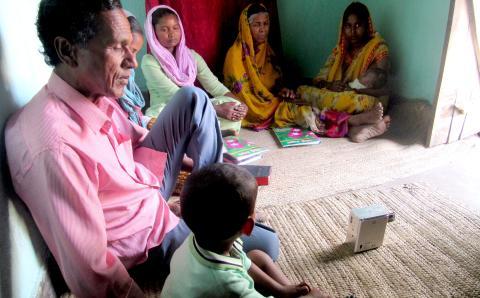While I don’t actually know any people from the Amish tradition and faith, I do have a perception of them. I picture people wearing old-fashioned clothes and driving a horse and buggy. I think of them as being “set apart” and I also admire their resolve.
That perception makes me wonder how others perceive the Christian Reformed Church.
Consider, for example, what outsiders think of your local congregation. Do they sense your church as a warm and inviting place or as a mysterious building that only gets busy on Sundays? Do they think your membership reflects your community or that it is made up of only a certain demographic?
Similar questions could be asked about our denomination more broadly. Does the general public perceive the Christian Reformed Church as indistinguishable from the broader evangelical world? Are we just another mainline church, or do people see us as unique? Do they recognize how a Reformed identity shapes how we live, work, raise our families, and participate in civil society?
And then there are questions about how people perceive Christianity in general. Some might think Christians have solid family values and a willingness to help others. A growing number of people, however, are suspicious of Christianity. They have experienced Christians as people who exclude others and cast judgement. Still others believe Christians are out of touch with the times and are on the verge of extinction.
Into these conflicting perceptions, we are called to live out our faith and be light to the nations (Isa. 49). Our denominational ministry plan, Our Journey 2020, outlines this in its first desired future: Our congregations will flow like streams into their communities. We will meet our neighbors at community events and gathering places, listening to each other, learning from each other, and serving each other. By our presence we will become channels for the love of Christ and the Holy Spirit’s life-giving transformation.
Historically, we have responded to this calling in different ways. Sometimes Christians have been tempted to wrap ourselves in a hidden faith. In stressing our commonality with others, we de-emphasize our faith and lose our ability to let our lights shine.
A subset of hidden faith can be thought of as the privatization of faith, where faith becomes a personal matter between a believer and God. A private faith often seeks to have the church be silent, so that the institution does not say or do anything that could be construed as representing its members. With private faith, individual Christians can be thought of as good people, but the witness of the broader church is silenced.
A third approach to living out our faith might be called confrontational faith. In this approach, Christians are so eager to save others from sin that they jump past getting to know people to build relationships. With confrontational faith, the witness of the church is bold but the message falls on deaf ears. Instead of building up the perception of Christianity in society, this approach builds barriers to the gospel.
Of course, none of these approaches is all that helpful. Whether we are considering how our congregation should reach out in our neighborhood, how we as individuals should share the gospel, or how our denomination can express our faith in a way that will spread across North America and around the world, we can’t hide our faith, hold it inside, or beat others over the head with it.
Instead, in humble confidence, we must ask God to help us speak with boldness (Acts 4: 29). With discernment, we must share God’s Word in its fullness (Col. 1: 25). With clarity in witness, we must give the reason for our hope to others with gentleness and respect (1 Pet. 3:15). Most important, in our communities and in this world, we must follow the apostle Paul’s instruction in 1 Corinthians 12-13, always seeking to act in love.
About the Author
Steven Timmermans served as the executive director of the Christian Reformed Church in North America from 2014 to 2020.
Steven Timmermans se desempeñó como director ejecutivo de la Iglesia Cristiana Reformada en América del Norte de 2014 a 2020.
Steven Timmermans는 2014 년부터 2020 년까지 북미에서 기독교 개혁 교회의 집행 이사로 재직했습니다.






